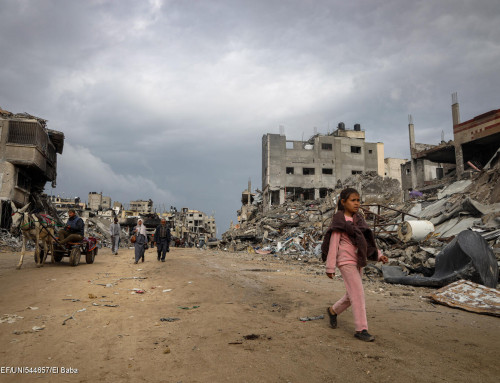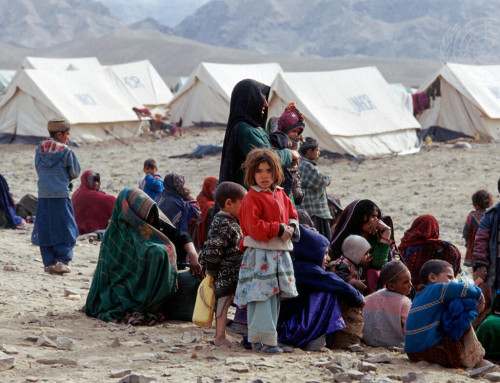7 March 2014 – When Hanad was just 11, his father, a former general in the Somali Army was abducted and killed by members of extremist Al-Shabaab group. Hanad was amongst the first to find his father’s body and severed head left close to their family home.
Soon after his father’s murder he decided to join the battalion his father used to lead to protect himself and his family.
“They let me hang around with them after my father was killed. I did odd jobs and errands for them and I began going to the frontline and started fighting too. I felt this is what I needed to do for my father,” he said. “I began fighting because I didn’t have another choice; it was kill or be killed.”
Hanad was given dangerous tasks – retrieving weapons abandoned at the front line, dragging injured soldiers back from crossfire and restocking ammunition for other fighters. He did this under the influence of the narcotic leaf Khat and glue which he says were both readily available at the frontlines to numb the fighters against fear.
“The reason I joined the army and the reason I stayed were different,” he said. “I felt I could not leave because I had made enemies of my own, and if I stopped fighting, I would suffer the same fate as my father.”
After four years in the army, Hanad was seriously wounded. His left arm was amputated and he has a permanent limp. He quit the army and began feeling disconnected from his former comrades.
Hanad joined the socio-economic reintegration program for children disassociated from armed forces and groups seven months later. Now 15 years old, he has learned how to write and read and how to live with his disabilities. He receives counseling and psycho-social support and is being trained on how to repair mobile phones as a vocational skill and hopes to make a living from this.
“I feel good that I am in this program, with people like myself and I am looking forward to graduating. I am happy about my future now and so is my family,” said Hanad.
Source: UNICEF Somalia



